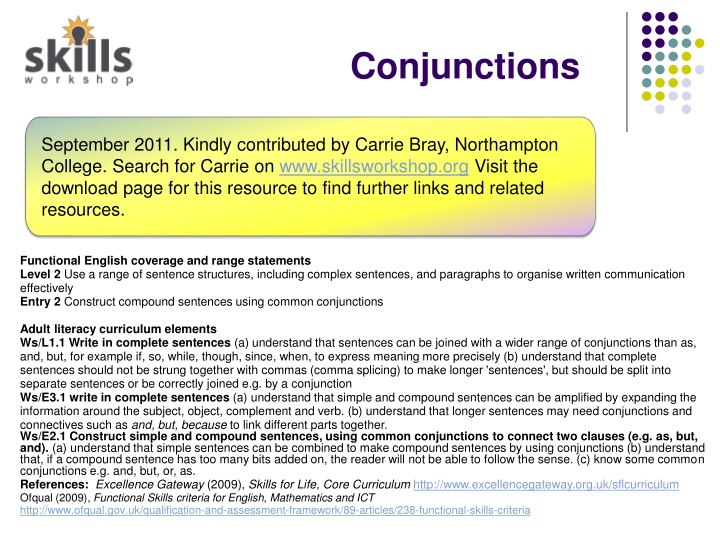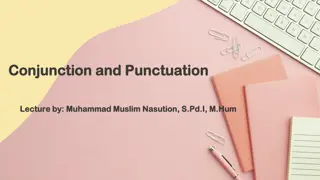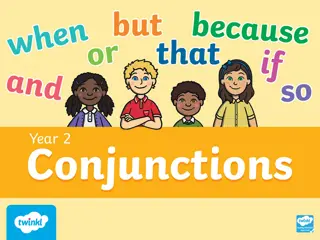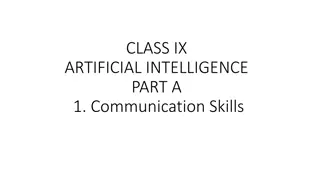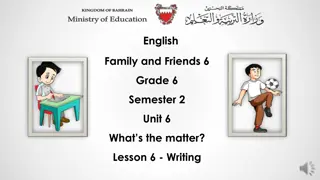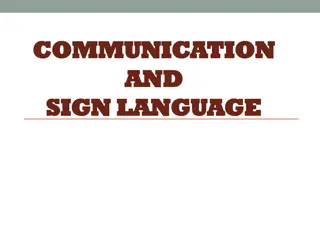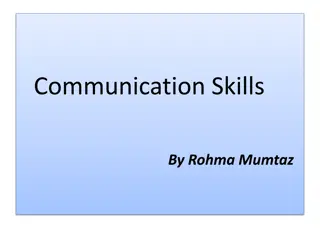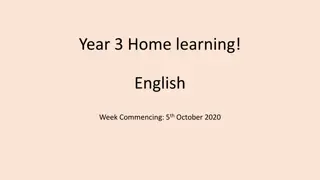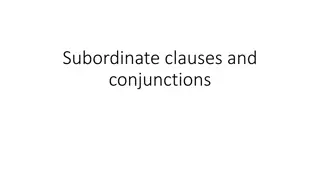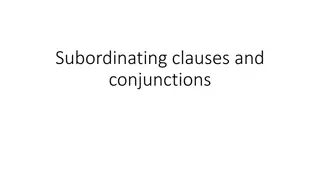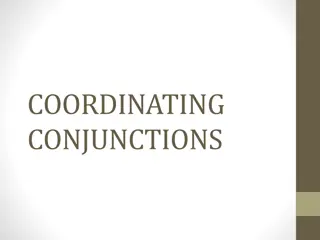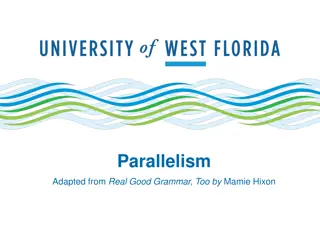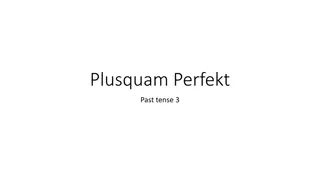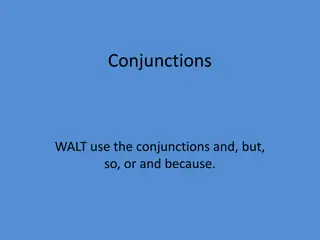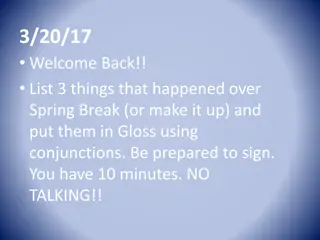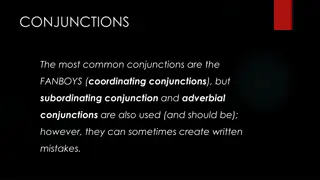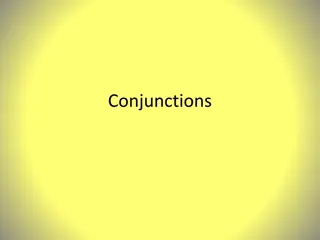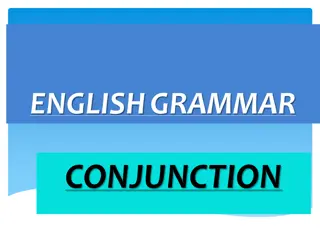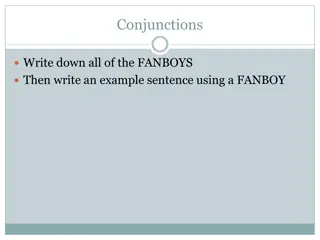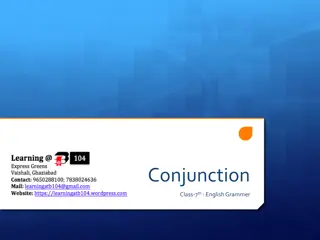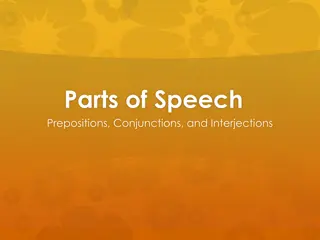Enhancing Written Communication with Conjunctions
Learn how to use conjunctions effectively to improve your written communication. Understand the importance of constructing compound sentences to connect ideas and avoid writing in a fragmented manner.
Download Presentation

Please find below an Image/Link to download the presentation.
The content on the website is provided AS IS for your information and personal use only. It may not be sold, licensed, or shared on other websites without obtaining consent from the author.If you encounter any issues during the download, it is possible that the publisher has removed the file from their server.
You are allowed to download the files provided on this website for personal or commercial use, subject to the condition that they are used lawfully. All files are the property of their respective owners.
The content on the website is provided AS IS for your information and personal use only. It may not be sold, licensed, or shared on other websites without obtaining consent from the author.
E N D
Presentation Transcript
Description: swlogo Conjunctions September 2011. Kindly contributed by Carrie Bray, Northampton College. Search for Carrie on www.skillsworkshop.org Visit the download page for this resource to find further links and related resources. Functional English coverage and range statements Level 2 Use a range of sentence structures, including complex sentences, and paragraphs to organise written communication effectively Entry 2 Construct compound sentences using common conjunctions Adult literacy curriculum elements Ws/L1.1 Write in complete sentences (a) understand that sentences can be joined with a wider range of conjunctions than as, and, but, for example if, so, while, though, since, when, to express meaning more precisely (b) understand that complete sentences should not be strung together with commas (comma splicing) to make longer 'sentences', but should be split into separate sentences or be correctly joined e.g. by a conjunction Ws/E3.1 write in complete sentences (a) understand that simple and compound sentences can be amplified by expanding the information around the subject, object, complement and verb. (b) understand that longer sentences may need conjunctions and connectives such as and, but, because to link different parts together. Ws/E2.1 Construct simple and compound sentences, using common conjunctions to connect two clauses (e.g. as, but, and). (a) understand that simple sentences can be combined to make compound sentences by using conjunctions (b) understand that, if a compound sentence has too many bits added on, the reader will not be able to follow the sense. (c) know some common conjunctions e.g. and, but, or, as. References: Excellence Gateway (2009), Skills for Life, Core Curriculum http://www.excellencegateway.org.uk/sflcurriculum Ofqual (2009), Functional Skills criteria for English, Mathematics and ICT http://www.ofqual.gov.uk/qualification-and-assessment-framework/89-articles/238-functional-skills-criteria
Conjunctions Putting simple sentences together
When to use conjunctions I like going out. I went out yesterday. I will go out again tonight. I m going to meet a friend. He is a new friend. His name is Bob. Bob is a musician. Bob will buy me a pint. I like Bob. Too many simple sentences together can appear strange and childlike. You can improve this by using compound sentences. You will have a go at improving this in a few minutes.
The most common conjunctions: and although as because but if or
Conjunctions for time Before, after, until, since, when, whenever, while We all went home before the fight broke out. She went to bed after she put the cat out. I won t do it until he says sorry. It s been quiet since he moved out. Put the computer off when you have finished! He washes his car whenever it gets mucky. The children go to cr che while Mum goes to work.
Conjunctions for place and agreement Place: where Remember that caf where you had that awful pie. Agreement: though, although, whether. He could drive a car though he was only five years old. I ll invite you in although the place is a mess. I don t care whether you want to do it or not!
